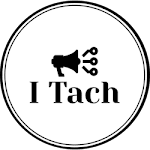Embark on the Cybersecurity Journey: Learn the Art of Bug Hunting
In a digital landscape where technology reigns supreme, the importance of cybersecurity cannot be overstated. For those eager to delve into the world of digital defense and uncover vulnerabilities, the realms of cybersecurity and bug hunting offer an exhilarating journey. This article serves as a guide for those looking to learn about cybersecurity and embark on the thrilling pursuit of bug hunting.
1. Understanding Cybersecurity Basics
Before venturing into bug hunting, it's crucial to establish a solid foundation in cybersecurity basics. This includes understanding the principles of network security, encryption, authentication, and common attack vectors. Online courses, tutorials, and cybersecurity certifications can be valuable resources for building this foundational knowledge.
2. Explore Cybersecurity Frameworks and Tools
Familiarize yourself with popular cybersecurity frameworks and tools. Frameworks like NIST Cybersecurity Framework or ISO/IEC 27001 provide structured approaches to cybersecurity, while tools like Wireshark, Burp Suite, and Metasploit offer hands-on experience in analyzing network traffic, testing web applications, and simulating cyber attacks.
3. Dive into Bug Hunting Basics
Bug hunting, also known as ethical hacking or penetration testing, involves actively searching for vulnerabilities in software, networks, or systems. Begin by understanding the fundamentals of bug hunting, including the types of vulnerabilities, common exploitation techniques, and the responsible disclosure of security issues.
4. Online Courses and Bug Bounty Platforms
Several online platforms offer dedicated courses on bug hunting and cybersecurity. Websites like Udemy, Coursera, and Pluralsight feature courses taught by industry experts. Additionally, bug bounty platforms such as HackerOne, Bugcrowd, and Synack provide real-world opportunities to practice bug hunting and earn rewards for responsibly disclosing vulnerabilities.
5. Participate in Capture The Flag (CTF) Challenges
Capture The Flag challenges are gamified cybersecurity exercises that allow participants to solve security-related puzzles and challenges. Engaging in CTFs enhances practical skills, sharpens problem-solving abilities, and simulates real-world cybersecurity scenarios. Platforms like Hack The Box and OverTheWire offer a variety of CTF challenges suitable for all skill levels.
6. Join Cybersecurity Communities
Become part of cybersecurity communities where enthusiasts, professionals, and experts share knowledge and experiences. Platforms like Reddit (r/netsec and r/AskNetsec), Stack Exchange (Security Stack Exchange), and Discord channels dedicated to cybersecurity provide valuable insights, discussions, and networking opportunities.
7. Continuous Learning and Certifications
Cybersecurity is a dynamic field, with new threats emerging regularly. Embrace a mindset of continuous learning by staying informed about the latest trends, vulnerabilities, and security best practices. Pursue industry-recognized certifications such as Certified Ethical Hacker (CEH), Offensive Security Certified Professional (OSCP), or CompTIA Security+ to validate your skills and knowledge.
8. Build a Home Lab for Hands-On Practice
Hands-on experience is paramount in cybersecurity and bug hunting. Set up a home lab where you can practice ethical hacking, test security configurations, and experiment with different cybersecurity tools. This practical approach enhances your skills and confidence in identifying and mitigating vulnerabilities.
9. Follow Security Researchers and Blogs
Stay connected with the broader cybersecurity community by following renowned security researchers, blogs, and podcasts. These sources often share insights into the latest vulnerabilities, exploit techniques, and industry trends. Some notable figures in the field include individuals like Bruce Schneier, Brian Krebs, and organizations like The Hacker News and KrebsOnSecurity.
10. Responsible Disclosure and Ethics
As you venture into bug hunting, always prioritize responsible disclosure and ethical conduct. If you discover a vulnerability, follow responsible disclosure practices by reporting it to the appropriate entity or through bug bounty programs. Upholding ethical standards is fundamental in the cybersecurity community.
Conclusion: A Journey of Continuous Discovery
Learning about cybersecurity and bug hunting is a journey of continuous discovery and growth. As you navigate this dynamic landscape, remember to blend theoretical knowledge with practical experience, engage with the community, and uphold ethical standards. The skills gained in cybersecurity not only contribute to personal and professional development but also play a crucial role in fortifying digital landscapes against potential threats. So, embark on this exciting journey, explore the depths of cybersecurity, and unravel the mysteries of bug hunting.

.jpg)